Slavic Heathenism or Rodnovery
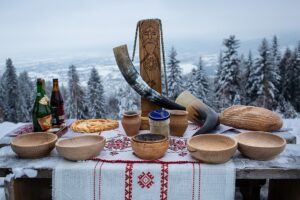 Part of being a heathen is understanding that while our gods are indeed our gods, there are gods of other pantheons that are similar to ours, such as in Rodnovery or Slavic Heathenism. Sometimes called Slavic Native Faith or Slavic Neopaganism, I considered writing about it after the war in Ukraine started.
Part of being a heathen is understanding that while our gods are indeed our gods, there are gods of other pantheons that are similar to ours, such as in Rodnovery or Slavic Heathenism. Sometimes called Slavic Native Faith or Slavic Neopaganism, I considered writing about it after the war in Ukraine started.
Praying to Slavic Gods, or How I Got a Kick in the Butt to Write About Them
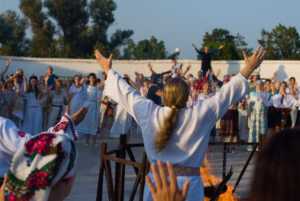 I knew I had to write about the Slavic gods when I came across an article by another pagan who wondered if we should consider praying to them for peace in Ukraine.This is an interesting idea, but one I am ambivalent about. Not because I think it’s cultural appropriation, but more because of the lack of familiarity. I believe that establishing a relationship with a god or gods is important. Like us, gods seem to prefer to work with the people they know, rather than total strangers.
I knew I had to write about the Slavic gods when I came across an article by another pagan who wondered if we should consider praying to them for peace in Ukraine.This is an interesting idea, but one I am ambivalent about. Not because I think it’s cultural appropriation, but more because of the lack of familiarity. I believe that establishing a relationship with a god or gods is important. Like us, gods seem to prefer to work with the people they know, rather than total strangers.
Let me give you an example. Let’s say an old friend contacts you to help him. Chances are, you would go out of your way to help, especially if this person was asking for something that was in your power.
Now, let’s say a total stranger sends you an email asking for help. The help is something you could do, but would you? Unless you’re really into opening emails from someone you don’t know, you probably would delete the email and move on with your life. Maybe if the favor they ask for was simple, like voting for a their pet or something in a contest, but if it were more than that, probably not.
This is how I see the gods. They are busy doing whatever they do, so they’re more likely to listen to those they know better than those who first contact them. Yes, there are exceptions. But in many cases, a god or gods will pay more attention to a human with whom they have a relationship. It just makes sense.
So, What About Slavic Heathenism?
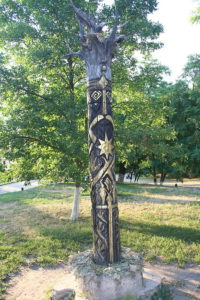 Slavic Heathenism is a rich religion and one I believe all Heathens should study, simply because it has some amazing folktales and beliefs. As far as I can tell, the Ukrainians and Russians worshiped the same gods, although with the Vikings invading and trading in what is now modern day Ukraine, I suspected our Northern gods were also worshiped by those in the area. Case and point, Perun is very similar to Thor, which makes me think that Perun took on attributes of the Thunderer when he became the head of the pantheon. I talk about Perun in this post, so check it out.
Slavic Heathenism is a rich religion and one I believe all Heathens should study, simply because it has some amazing folktales and beliefs. As far as I can tell, the Ukrainians and Russians worshiped the same gods, although with the Vikings invading and trading in what is now modern day Ukraine, I suspected our Northern gods were also worshiped by those in the area. Case and point, Perun is very similar to Thor, which makes me think that Perun took on attributes of the Thunderer when he became the head of the pantheon. I talk about Perun in this post, so check it out.
Interestingly enough, Slavic Heathenism is both polytheistic and pantheistic. They have many gods, similar to Heathenism. However, they believe that the gods are all aspects of their one god, Rod. Rod is the original god in their pantheon.
Rod, also known as Sud to the Southern Slavs, is a god of the family, fate, and ancestors. He is often accompanied by the Rozhanitsy, which are female spirits similar to the Norns. They determine each child’s fate when it is born.
General Beliefs of Rodnovery
Rodnovery tends to emphasize community over individualism (sound familiar?), and while there are certainly lone practictioners, the emphasis is more on group worship. They also emphasize more “traditional” roles and put a strong emphasis on the importance of Slav ethnicity. Reconstruction is important to many practicers of Rodnovery, although given most of the information we have on the ancient practices are according to biased Christian sources, I wonder how much can be reconstructed. I suspect they have the same problems that we do with reconstructing their religion.
Problems with Right-Wing Believers
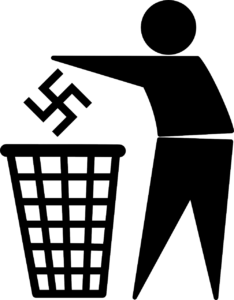 Rodnovery, like Heathenism and Asatru, has similar problems with white supremacists and other trash that we have to deal with. I guess that’s common in any religion that comes from Europe. It’s also a religion that is considered more conservative when it comes to male and female roles, and also about who may be able to join their religion. Although I don’t have problems with people being proud of their nationality and ethnicity, there are groups within Slavic Heathenism who espouse ethnic purity, ethnic separatism, patriarchy, and traditional families. Certainly not all Slavic Heathens believe this, which is why there are different groups within Rodnovery.
Rodnovery, like Heathenism and Asatru, has similar problems with white supremacists and other trash that we have to deal with. I guess that’s common in any religion that comes from Europe. It’s also a religion that is considered more conservative when it comes to male and female roles, and also about who may be able to join their religion. Although I don’t have problems with people being proud of their nationality and ethnicity, there are groups within Slavic Heathenism who espouse ethnic purity, ethnic separatism, patriarchy, and traditional families. Certainly not all Slavic Heathens believe this, which is why there are different groups within Rodnovery.
Painting those who worship the Heathen Slavic gods with the same broad brush would be similar to saying all Heathens are white supremacists or all Muslims are terrorists. So, if you decide to study the Slavic gods, keep this in mind.
Should You Pray to the Slavic Gods for Peace?
My thoughts is that if it feels right to pray to these gods, then go ahead. Otherwise, consider praying to their counterparts with our own Northern gods. I don’t think a Slavic god is going to smite you for a request such as peace, but whether they pay attention is a whole other story in and of itself. Certainly the Slavic Heathen gods are well aware what is happening in Ukraine.
I think I’ll probably be covering more about the Slavic Heathen gods in other posts, as well as more about the lesser known Nordic gods. Let me know what you think in the comments.
—
Did you know you can become my patron for as little as $5 a month? This entitles you to content not posted anywhere else. Plus you get to see posts like this three days before the public! Without patrons, I’d be having a very hard time keeping this blog going. Become a patron today!Become a Patron!
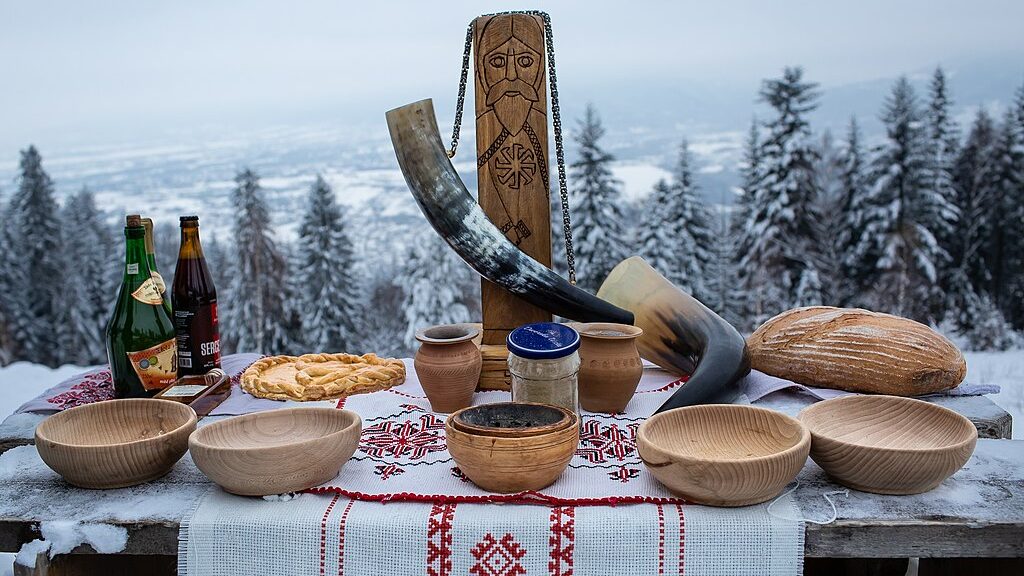
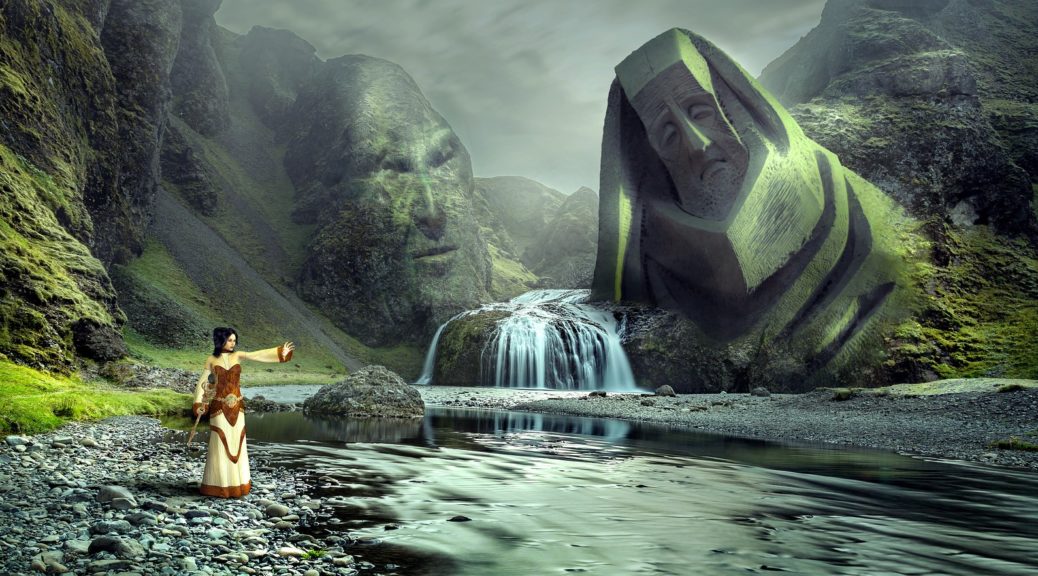

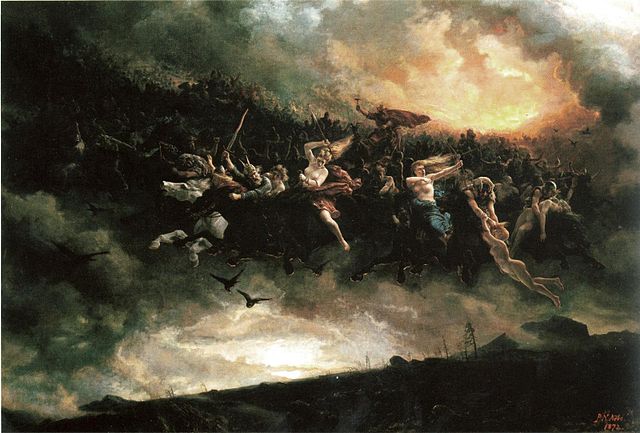 Moon and the Sun move across our sky, rather than the Earth revolving around the Sun and the Moon revolving around the Earth. That there really was a cow that licked the brine from Ymir and the gods, thus creating the first pantheons. That Odin along with his brothers slew Ymir and fashioned our Earth from Ymir’s bones. This is more fundamentalist than anything, and again, since you really believe that, nothing I’m going to tell you is going to make a difference.
Moon and the Sun move across our sky, rather than the Earth revolving around the Sun and the Moon revolving around the Earth. That there really was a cow that licked the brine from Ymir and the gods, thus creating the first pantheons. That Odin along with his brothers slew Ymir and fashioned our Earth from Ymir’s bones. This is more fundamentalist than anything, and again, since you really believe that, nothing I’m going to tell you is going to make a difference. Now, if you believe our gods manifest themselves in physical forms, that’s fine. I’m good with that. I believe that they can and do, but I also don’t believe that Asgard exists in our dimension. I tend to
Now, if you believe our gods manifest themselves in physical forms, that’s fine. I’m good with that. I believe that they can and do, but I also don’t believe that Asgard exists in our dimension. I tend to 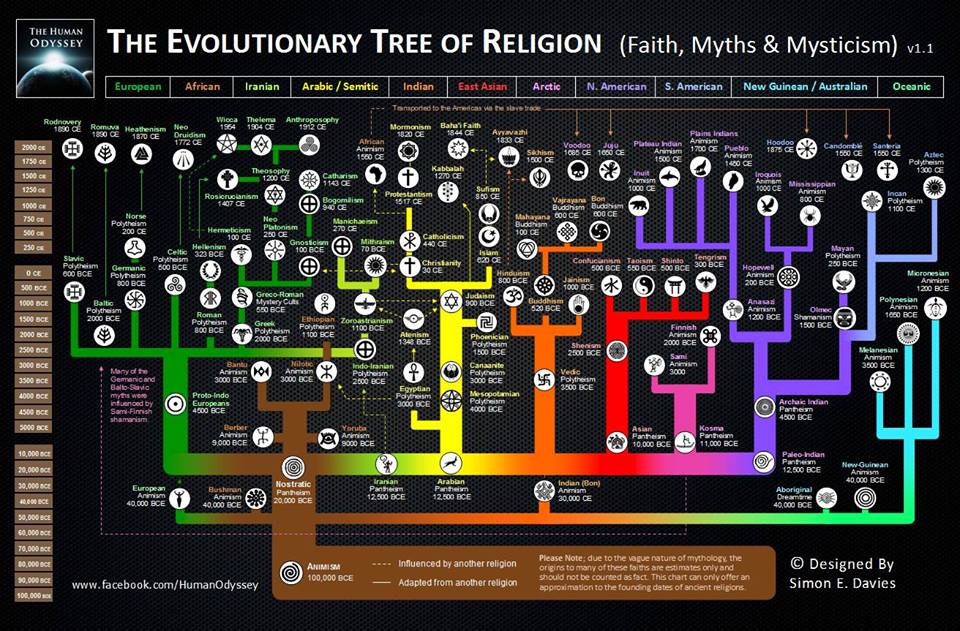
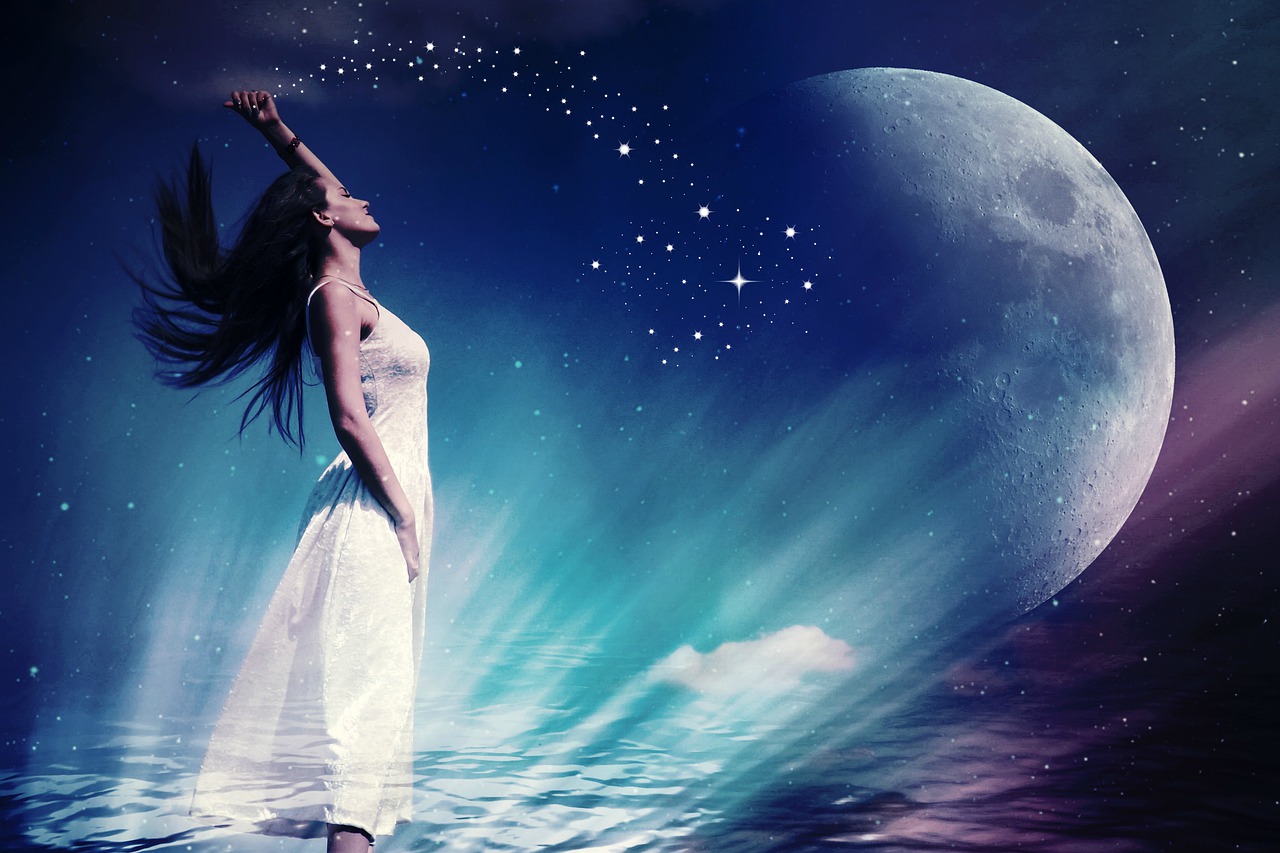 Soft polytheism tends to look more at the concepts of the gods as archetypes. In it’s extreme form, it’s closer to atheism than a religion. I would not consider most soft polytheists in that group. Many are pantheists, which allows the worship of other gods, and it equates the universe with the gods. I sit more comfortably in the pantheistic version of Heathenry, because I believe that the universe and the gods are the same. My belief is our gods go by other names in other religions. I chose our gods not only because I am most comfortable with them, but because I have had interactions with them by those names.
Soft polytheism tends to look more at the concepts of the gods as archetypes. In it’s extreme form, it’s closer to atheism than a religion. I would not consider most soft polytheists in that group. Many are pantheists, which allows the worship of other gods, and it equates the universe with the gods. I sit more comfortably in the pantheistic version of Heathenry, because I believe that the universe and the gods are the same. My belief is our gods go by other names in other religions. I chose our gods not only because I am most comfortable with them, but because I have had interactions with them by those names.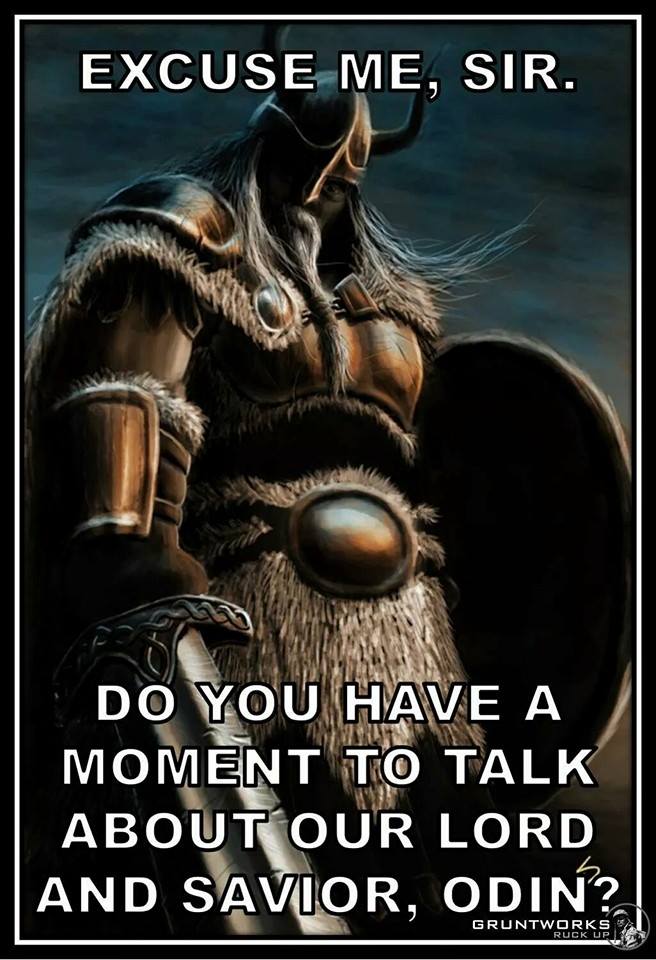
 On one of the myriad groups I occasionally hang out on, I noticed someone was asking if the Norse gods were the only gods. In this world of monotheistic gods, it’s not as strange of a question as pagans would like to think. Are the Northern deities the only gods out there? And if they aren’t, what makes them better than any other gods?
On one of the myriad groups I occasionally hang out on, I noticed someone was asking if the Norse gods were the only gods. In this world of monotheistic gods, it’s not as strange of a question as pagans would like to think. Are the Northern deities the only gods out there? And if they aren’t, what makes them better than any other gods?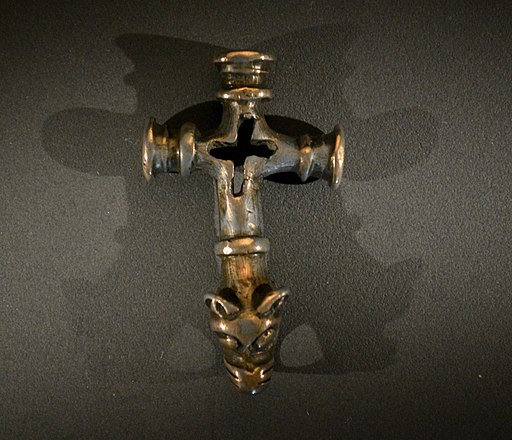 We know that the Icelandic peoples worshiped Jesus alongside the Norse gods, given the Icelandic Cross/Thor’s Hammer. It’s also suspected that the Vanir are a group of gods that got assimilated into the Northern pantheon sometime in the past, thus making the Aesir and Vanir to be two groups of gods that merged to give us our current pantheon.
We know that the Icelandic peoples worshiped Jesus alongside the Norse gods, given the Icelandic Cross/Thor’s Hammer. It’s also suspected that the Vanir are a group of gods that got assimilated into the Northern pantheon sometime in the past, thus making the Aesir and Vanir to be two groups of gods that merged to give us our current pantheon.